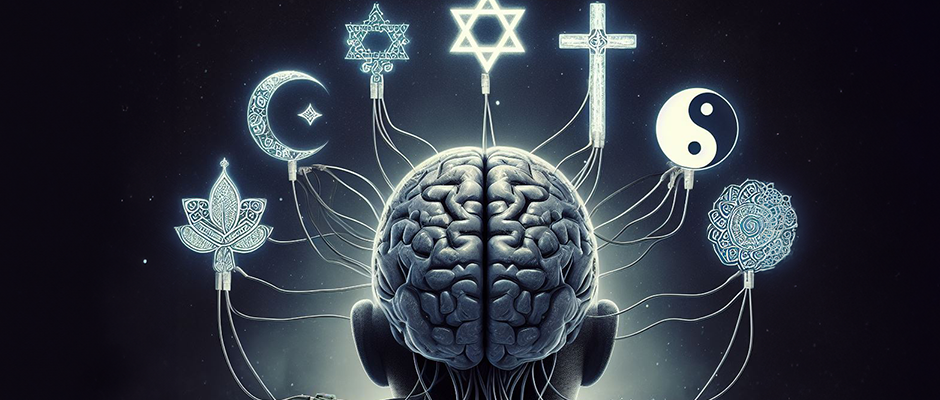Update: In a shift from our original release schedule, which planned for weekly installments, we’re accelerating our pace. Now, we’ll unveil a new part of the series every 2 days, condensing the complete series rollout to just 2 weeks instead of 2 months. This change ensures that our comprehensive exploration into the topic is delivered to you in a more timely and engaging manner.
8 part series / Part 1: The Psychology of Faith: How Religion Exploits Human Vulnerabilities.
— Introduction
— Thesis
— Intent
Welcome to the opening chapter of our eight-part exploration, a journey that will traverse the deep and enduring influence of religion and faith on the fabric of human existence. Throughout history, these belief systems have not only shaped our understanding of morality and existence but have also provided a sanctuary for those in search of meaning, purpose, and a moral compass to navigate life’s tumultuous seas.
As we stand on the precipice of this inquiry, let us delve into the heart of what makes religion both a source of profound comfort and a tool for manipulation. Our venture is not just an academic exercise; it’s a voyage into the very psyche of humanity, unraveling how our cognitive biases, emotional needs, and the yearning for social belonging can be intricately woven by religious narratives to guide, and sometimes control, the collective human spirit.
This series is your invitation to engage with a narrative that goes beyond the surface, to question and critically examine the psychological underpinnings that make religious beliefs so potent and pervasive. Drawing from the latest research across psychology, neuroscience, and social sciences, we aim to illuminate the nuanced ways in which faith shapes our thoughts, feelings, and actions—often operating beneath the threshold of our conscious awareness.
Our journey together is predicated on a clear and assertive thesis: to shed light on the manipulative frameworks at the core of religious doctrines that, while offering solace, also have the power to exploit and control. It’s an exploration that acknowledges the dual nature of faith—as a source of guidance and, paradoxically, a potential vehicle for psychological coercion.
The series promises to be an enlightening expedition that not only scrutinizes the seemingly benign aspects of religious systems but also dares to confront the more covert mechanisms of control and dependency they can engender. Our objective is to cultivate a space for critical reflection and dialogue, one that respects the complexity of individual beliefs while encouraging a more informed and skeptical approach to understanding the role of religion in our lives and societies.
In a world increasingly polarized by religious fervor and ideological divides, fostering open, honest discourse about the influence of faith is not just beneficial—it’s imperative. By engaging with this series, you’re participating in a larger conversation about the psychological vulnerabilities targeted by religious ideologies, aiming to foster a more critical and enlightened dialogue on these deeply personal and intricate matters.
So, step forward with us as we dive deep into the hidden psychological forces that mold our beliefs and behaviors. Let’s embark on this journey of discovery, aimed at revealing how religion preys on the human psyche. Our mission is to arm you with knowledge, fostering a world that values intellectual freedom and critical thinking above all. Your curiosity and readiness to question are the tools we need to dismantle the illusions and expose the truths in the chapters to come. Join us in this critical examination, and together, let’s challenge the status quo to build a more informed and questioning future for all.
Be sure to read the rest of the series: The Psychology of Faith: How Religion Exploits Human Vulnerabilities
- Part 1: Introduction, Thesis, Intent
- Part 2: Understanding Basic Human Needs, Cognitive Biases and Religion
- Part 3: The Concept of Fear in Religious Doctrines, Uncertainty and the Promise of Afterlife
- Part 4: The Role of Community in Reinforcing Beliefs, Peer Pressure and Religious Indoctrination
- Part 5: Childhood Indoctrination: A Vulnerable Start, Creating a Dependency Loop
- Part 6: The Psychology Behind Belief in Miracles, Testimonials and Anecdotal Evidence
- Part 7: Questioning and Critical Thinking, The Journey of Deconversion
- Part 8: Recap, Call to Action, Studies books and articles used as references, Suggested reading


